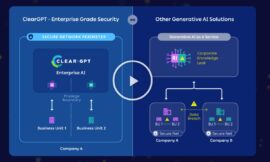Google has numerous free courses for you to fully immerse yourself in the world of artificial intelligence. Here you will find 10 of them on all kinds of topics.
Artificial intelligence has emerged as one of the most revolutionary and promising technologies today. His ability to transform industries and improve the lives of thousands of people has generated a growing interest in learning and mastering this discipline.
In this sense, Google, one of the leading technology companies, has taken a leading role by offering a series of free courses that allow anyone interested to delve into the exciting world of AI.
Designed to introduce both beginners and seasoned professionals to the industry, these courses give everyone a great opportunity to develop much-needed skills in 2023—and beyond—and become an AI expert.
That is why in this article you will find 10 new free courses that Google has just launched —in English— so that you can take the definitive leap into this technology and become a master of artificial intelligence, all thanks to a tweet published by @luix_ia.
10 totally free courses to specialize in artificial intelligence
Automatic learning ( Machine Learning )
This course offers a comprehensive introduction to machine learning, covering everything from basic concepts to practical applications. Students will learn to create and train AI models, as well as apply them to different real-world problems.
Fundamentals of Generative AI
It provides a great introduction to the fundamental concepts of this field, covering topics such as generative adversarial networks (GANs), generative and variational neural networks (VAEs), and flow models. These approaches allow students to create models that can autonomously generate images, music, text, and other forms of content.
Attention mechanisms
This course focuses on one of the key concepts in artificial intelligence and deep learning, known as “attention,” which has been shown to be critical to improving the performance and accuracy of various machine learning models.
image recognition
This course specifically focuses on teaching how machines can interpret and analyze visual images using pattern recognition and machine learning techniques.
Throughout this course, students will be able to delve into the world of computer vision and develop skills to address problems related to image identification and classification.
Introduction to Generative AI
It provides an overview of the fundamental concepts of generative artificial intelligence, including basic generative models, training techniques, and applications in fields such as the creation of art, music, and texts.
Responsible AI
Topics such as fairness and justice in AI systems, transparency and explainability of models, privacy and data security, as well as the impact on society and cultural considerations in the implementation of AI technologies will be explored. AI.
Transformer and BERT Models
This course focuses on Transformers, a neural network architecture that has revolutionized the field of Natural Language Processing (NLP). Transformers are especially known for their ability to capture patterns of relationships between words and generate high-quality contextual representations.
In addition, the course explores in depth the BERT model ( Bidirectional Encoder Representations from Transformers ), one of the most powerful and widely used models by Google.
Generative AI study
This one addresses a more detailed and technical view of how generative models work in artificial intelligence. In this course, students will learn about the theoretical and practical foundations of data generation using machine learning algorithms. They will also explain what Generative AI Studio is, its features and options.
Coder-Decoder Architecture
Language models, such as GPT ( Generative Pre-trained Transformer ) and T5 ( Text-to-Text Transfer Transformer ), have demonstrated an amazing ability to understand and generate text in a coherent and contextual manner.
In the course, students will explore the principles and techniques behind these models and learn how to apply them to solve NLP problems such as machine translation, text summarization, and dialog generation.
Great Language Models
Students will learn how to design, implement and train Encoder-Decoder systems using neural networks and how to adapt them to different PLN tasks. Key concepts, such as attention and translation mechanisms, that allow these models to generate accurate and consistent results will also be explored.


